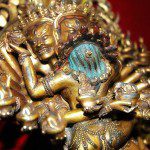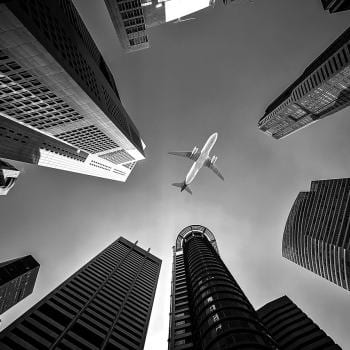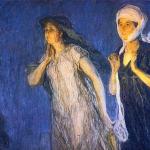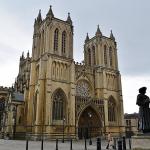In “Life in Red – A Journey from Sydney Suburbs to Nagpur Slums” Tibetan Buddhist nun (or Bhikkhuni in Pali), Ayya Yeshe speaks of her journey into Tibetan Buddhism, her disillusionment with what she describes as “internalized patriarchy, [not] just our bad karma [as nuns or females]”, and her move to India, where she found it easier than Australia to live as a monastic.
In a beautifully filmed video, Yeshe offers us an insider’s view of what a woman might encounter as a Western nun. You can read more about her life as a “second class citizen” for Tricycle in 2017; that article begins “By paying lip service to female empowerment but not materially supporting Western female monastics, we leave them—and the future of Tibetan Buddhism in the West—in doubt.”
In the video, Ayya Yeshe notes the 75% disrobing rate and the institutional structures that limit women. Seeing this and having a “crisis of faith,” she asks, s “what is the true essence of your religion, and what is cultural baggage, what is cultural overlay? What is something that is transcendent, and what is something that is being used to keep the powerful in power and oppress the vast majority?”
In a particularly moving piece of the video, Ayya Yeshe recounts a time in Bodhgaya, seeing very wealthy temples filled with foreign Buddhists and tall walls topped with barbed wire living in a bubble. Meanwhile the local population lives in deep poverty, locked outside those walls. She asks herself, if the Buddha were here today, which side would he be on?
It is this kind of question that lies at the center of Engaged Buddhism, purposefully looking at the world and asking how the teachings fit in our real everyday lives. This is opposed to a tendency to individualistically consume Dharma (teachings) and practices.
Progressive Buddhism
Elsewhere, Ayya Yeshe’s move beyond tradition and clearly critiquing its failings (in this case the failure to widely support monastic women) is at the heart of Progressive Buddhism, a new trend in Buddhism to openly critique tradition where it is in conflict with helping the world today. This is not an ideological critique such as might be lobbied by Cardinal Ratzinger (see here or here) or Zizek (here or here); it is a critique based from firmly within Buddhist practice and ideals.
Progressive Buddhism, like Engaged Buddhism, isn’t a new school or sect. It is, instead, an approach to Buddhism which asks, in humility and openness, “what can we do better? What really needs to change in our own tradition to better serve humanity?” In a sense this must have been done throughout Buddhist history, as Buddhists have encountered new (to them) practices and ideas and adopted them.
As Linda Heuman wrote in 2011 in “Whose Buddhism is Truest“, the Buddhist tradition(s) has always been one of a certain degree of flow and change and as we all come to understand this, it “may well blow away outdated, parochial barriers between traditions and help bring Buddhism into line with the pluralistic climate of our times.”
I’ve written about Sebene Selassie as a “hero of Progressive Buddhism”, and suggested a (very) rough outline of Progressive Buddhism for the Progressive Buddhism Blog. When Buddhists look seriously at historical critiques of inequality, even where they’ve occurred within Buddhism: they’re being progressive. When Buddhists take seriously the potential of Western psychologists and neuroscientists to evaluate and even scrutinize traditional techniques and practices: they’re being progressive. When Buddhists make dealing with climate change a central concern of their lives, they’re being progressive.
She writes:
At Bodhicitta foundation, we change hundreds of lives each year. We make 6000 meals per year, have a girls home and educate 300 children through our programmes, as well as helping women start their own businesses in tailoring, computers, beauty therapy and more!
Your small change could change a life!
www.bodhicitta-vihara.comDonations are tax deductible in Australia.
Ayya Yeshe is an Australian Buddhist nun, socially engaged activist, aspiring bodhisattva and mystic traveler. She is the founder of the Bodhicitta Foundation in India and splits her time between India and Australia. Her teachers are Sakya Trizen (the second highest Lama in Tibetan Buddhism) and Ven Thich Nhat Hanh, the Nobel Peace Prize poet and peace activist. Ayya Yeshe is the author of ‘Everyday Enlightenment‘ published by Harper Collins and is featured in the documentaries ‘life beyond the begging bowl’ and ‘Through the Eastern Gate‘. She is also made a Buddhist chanting CD with one of Australia’s top world music groups – India Jiva called ‘Dakini’.
She recently contributed the following to American Buddhist Perspectives:
Buddhists Need to Make More Room for Understanding Anger
please join our community of patrons.













